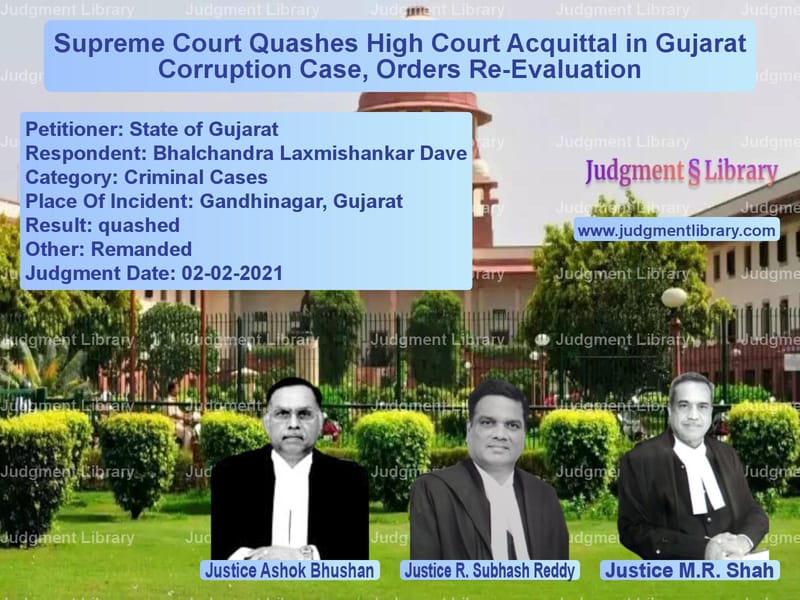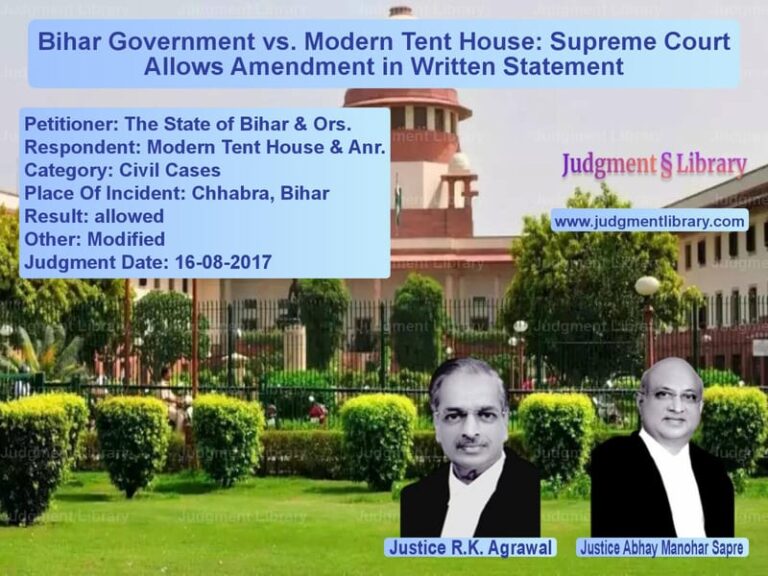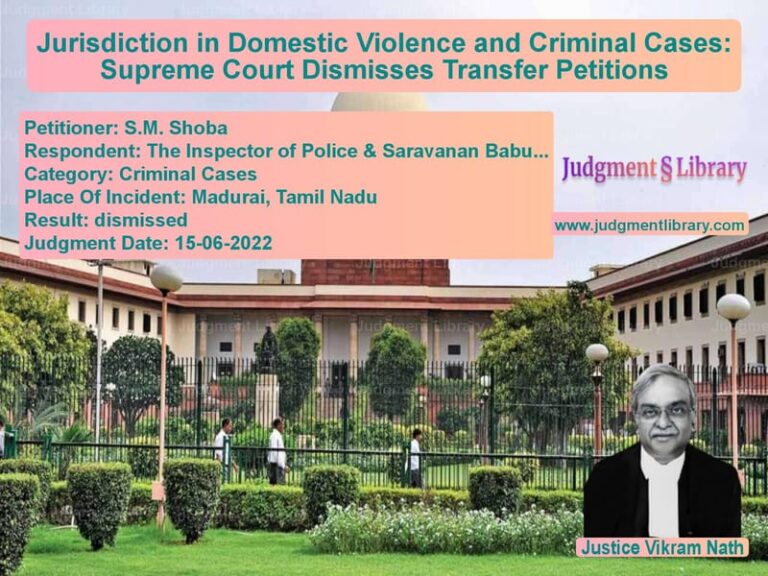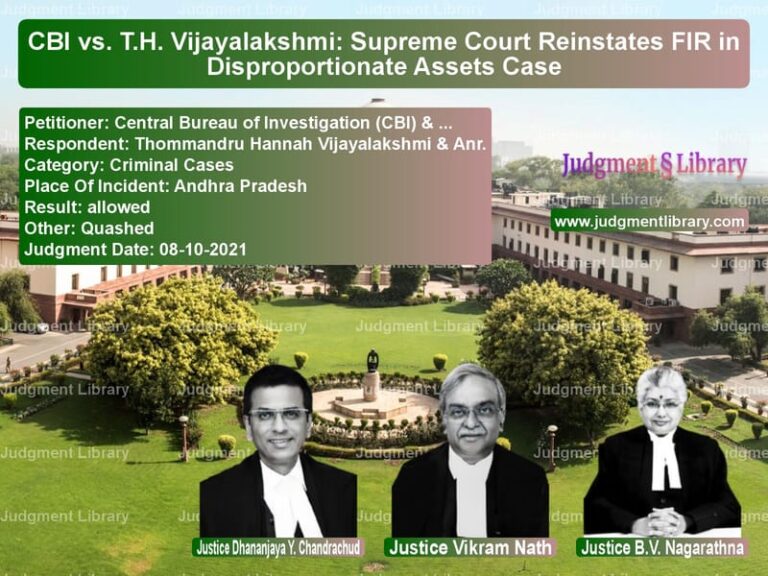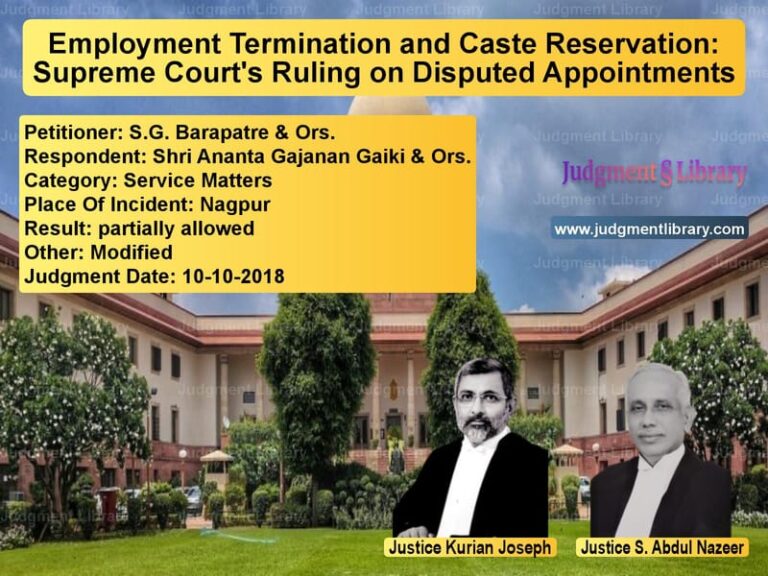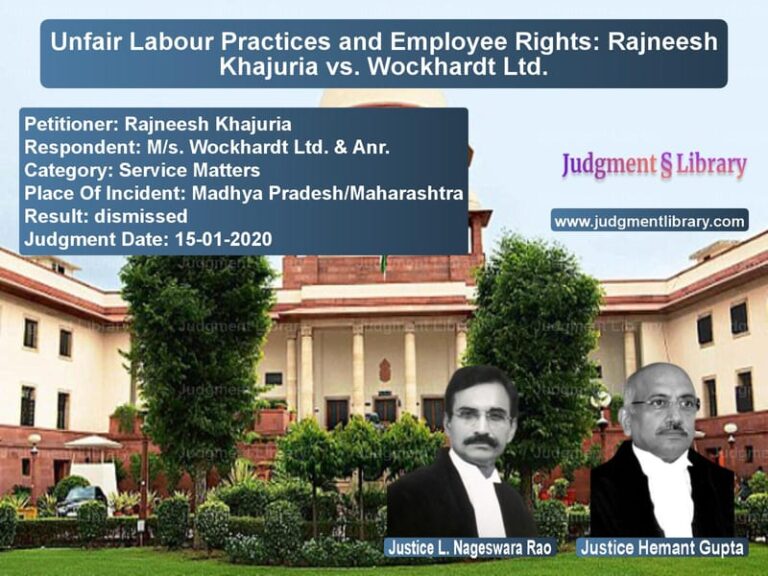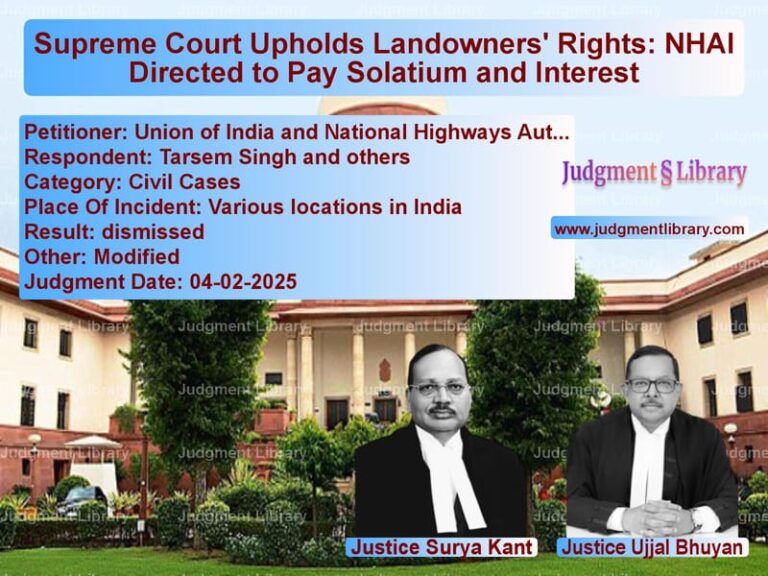Supreme Court Quashes High Court Acquittal in Gujarat Corruption Case, Orders Re-Evaluation
The Supreme Court of India delivered a significant judgment on February 2, 2021, in the case of State of Gujarat vs. Bhalchandra Laxmishankar Dave, setting aside the acquittal of a Gujarat government official convicted under the Prevention of Corruption Act, 1988. The Court ruled that the Gujarat High Court had failed to properly assess the trial court’s reasoning and directed it to re-examine the case.
A bench comprising Justices Ashok Bhushan, R. Subhash Reddy, and M.R. Shah emphasized that appellate courts must thoroughly analyze trial court judgments before reversing convictions, particularly in corruption cases.
Background of the Case
Bribery Allegations Against ITI Official
The accused, Bhalchandra Laxmishankar Dave, was employed as an Assistant Director at ITI, Gandhinagar. He was charged under Section 7 read with Sections 13(1) and 13(2) of the Prevention of Corruption Act, 1988, for allegedly accepting a bribe in connection with his official duties.
Trial Court Conviction
After reviewing the prosecution’s evidence, the Special Judge, Bharuch, convicted Dave and sentenced him to:
- 5 years imprisonment under the Prevention of Corruption Act.
- Fine of Rs. 10,000, with an additional jail term if unpaid.
High Court Acquittal
The Gujarat High Court, in an appeal filed by Dave, acquitted him on January 12, 2015, setting aside the trial court’s judgment. The State of Gujarat subsequently appealed to the Supreme Court, arguing that the High Court had failed to conduct a thorough re-evaluation of the evidence.
Supreme Court’s Observations and Ruling
Failure of High Court to Properly Re-Appreciate Evidence
The Supreme Court noted that an appellate court must thoroughly review all material before reversing a conviction. It stated:
“The High Court has not strictly proceeded in the manner in which it ought to have while dealing with the appeal against the order of conviction.”
Legal Standards for Appeals Against Convictions
The Court reaffirmed that appellate courts must independently evaluate evidence and consider the reasoning behind a conviction before setting it aside. It cited:
- Umedbhai Jadavbhai vs. The State of Gujarat (1978) 1 SCC 228: The appellate court must assess evidence in its entirety when reviewing a conviction.
- Sharad Birdhichand Sarda vs. State of Maharashtra (1984) 4 SCC 116: Prosecution must establish an unbroken chain of evidence in corruption cases.
High Court’s Erroneous Approach
The Supreme Court criticized the High Court’s decision-making process, stating:
“The High Court’s acquittal is based on a totally erroneous view of law and ignores settled legal principles. The failure to evaluate prosecution evidence has led to a miscarriage of justice.”
Final Judgment
- The Supreme Court quashed the Gujarat High Court’s acquittal.
- The case was remanded to the High Court for a fresh re-evaluation.
- The High Court was directed to review the entire evidence and provide detailed reasoning.
- The Supreme Court refrained from commenting on the merits of the case, ensuring a fair re-evaluation.
Key Takeaways from the Judgment
- Appellate courts must thoroughly re-examine evidence before reversing a conviction.
- High Court judgments must contain detailed reasoning when setting aside a trial court’s decision.
- Judicial scrutiny in corruption cases must be stringent to maintain public trust.
- Failure to appreciate evidence can lead to a miscarriage of justice.
- Quashing a conviction requires valid legal grounds, not mere differences in opinion.
Impact of the Judgment
This ruling strengthens the legal framework for reviewing corruption cases, ensuring that higher courts cannot overturn trial court convictions without substantial justification.
Conclusion
The Supreme Court’s decision in State of Gujarat vs. Bhalchandra Laxmishankar Dave reaffirms the principles of judicial review in corruption cases. By remanding the matter to the Gujarat High Court, the ruling ensures that corruption cases are reviewed fairly and thoroughly, maintaining accountability in the justice system.
Read also: https://judgmentlibrary.com/review-of-criminal-case-transfer-supreme-court-reinstates-delhi-trial/
Petitioner Name: State of Gujarat.Respondent Name: Bhalchandra Laxmishankar Dave.Judgment By: Justice Ashok Bhushan, Justice R. Subhash Reddy, Justice M.R. Shah.Place Of Incident: Gandhinagar, Gujarat.Judgment Date: 02-02-2021.
Don’t miss out on the full details! Download the complete judgment in PDF format below and gain valuable insights instantly!
Download Judgment: state-of-gujarat-vs-bhalchandra-laxmisha-supreme-court-of-india-judgment-dated-02-02-2021.pdf
Directly Download Judgment: Directly download this Judgment
See all petitions in Fraud and Forgery
See all petitions in Legal Malpractice
See all petitions in Judgment by Ashok Bhushan
See all petitions in Judgment by R. Subhash Reddy
See all petitions in Judgment by Mukeshkumar Rasikbhai Shah
See all petitions in Quashed
See all petitions in Remanded
See all petitions in supreme court of India judgments February 2021
See all petitions in 2021 judgments
See all posts in Criminal Cases Category
See all allowed petitions in Criminal Cases Category
See all Dismissed petitions in Criminal Cases Category
See all partially allowed petitions in Criminal Cases Category

